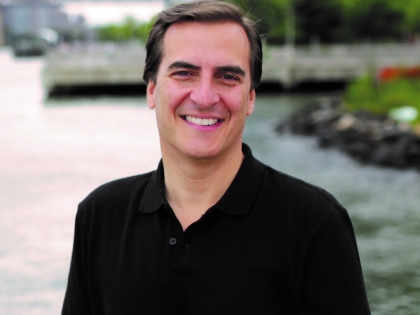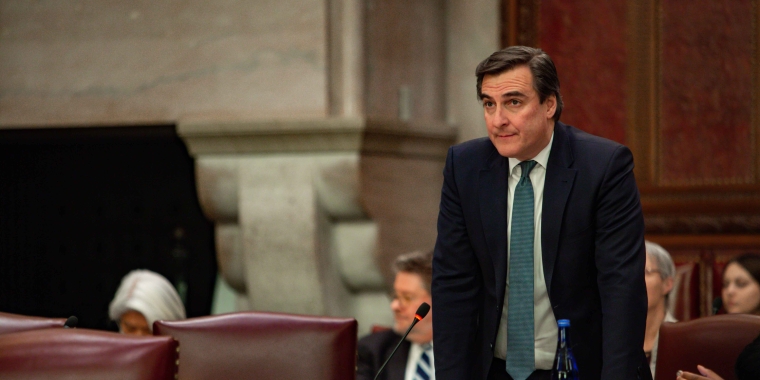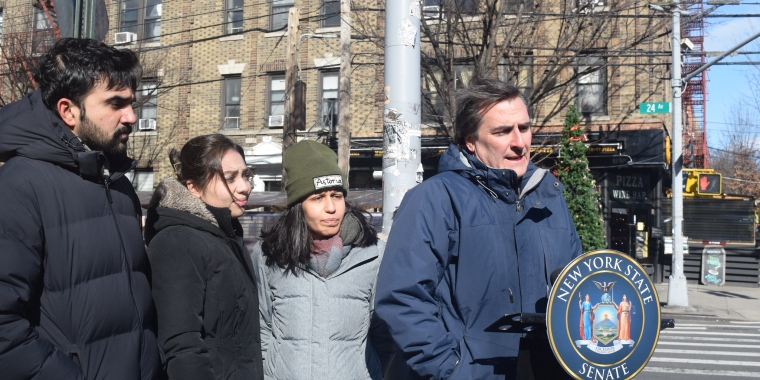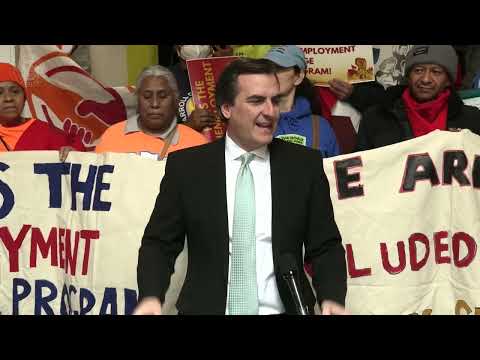
New York Daily News: Criminal justice advocates and crime victims say critics of reforms are ‘fear-mongering’ and spreading misinformation

Advocates and supporters of criminal justice reforms slated to take effect next month are fed up with the criticisms coming from cops and prosecutors.
Thern Shivers, a 55-year-old activist from Hempstead, L.I., says her personal experiences have colored her belief that the concerns coming from law enforcement officials about the changes, including expedited evidence sharing and the end of cash bail for most crimes, are overblown.
“My life and that of my child have been jeopardized by a criminal legal system that has prioritized incarceration beyond the well-being of people, families and communities,” she said.
Shivers, living on a fixed income of $695 a month, was arrested in 2016 and a judge set bail at $1,000 cash or bond. She was forced to use rent money to cover the bail and came close to being evicted before the charges were dismissed.
“My life and that of my child have been jeopardized by a criminal legal system that has prioritized incarceration beyond the well-being of people, families and communities,” she said.
Shivers, living on a fixed income of $695 a month, was arrested in 2016 and a judge set bail at $1,000 cash or bond. She was forced to use rent money to cover the bail and came close to being evicted before the charges were dismissed.
“The damage and trauma I’ve survived cannot be undone, but I am relieved that others will not be at risk to suffer the same by a system that cages people instead of healing and caring for their well-being,” she said.
Shivers, now a member of New York Communities for Change, and others who have turned their experiences with the system into advocacy will join fellow advocates, lawmakers and faith leaders as they mount a coordinated statewide effort against the swell of push-back from prosecutors and law enforcement officials.
Supporters, arguing that current bail and pretrial laws unfairly impact minority and poorer communities, will hold rallies in the city, Nassau County, upstate Ulster County, and in Albany on Monday. The events are timed to coincide with International Human Rights Day.
Courtney Miller, a community organizer with Citizens Action New York, championed another aspect of the new laws that ensure people’s rights to swift justice.
Miller was walking to a subway stop in the Bronx when she was shot in the leg in 2014 by a 16-year-old firing at someone else. The teen was denied bail, as he would have under the new laws as well, but the case languished in the court system.
“Had there been the speedy trial laws in the books, I could have had closure more quickly,” Miller said. “For three years, as the victim, not knowing was devastating, not being able to move on with my life.”
The 35-year-old spoke at the boy’s 2017 sentencing after he pleaded guilty, forgiving him. The judge said her testimony helped him receive a lighter sentence.
“To me, not forgiving him would have perpetuated a cycle. His life was worth so much more than the crimes that were committed,” she said.
Newly appointed NYPD commissioner Dermot Shea is among those who recently joined the chorus of voices, including the state’s district attorneys and sheriffs associations, calling for the reforms to be rolled back.
The city’s new top cop and others say they are concerned about public safety and worried they don’t have the resources, staff or technology necessary to comply with the new laws.
While Republicans have joined law enforcement in calling for the reforms to be either scrapped or delayed, Democratic leaders continue to defend the measures.
"The critical reforms we enacted this year will begin to make things right and give us a criminal justice system we can be more proud of,” said Sen. Michael Gianaris (D-Queens), the author of the bail bill.
Assembly Speaker Carl Heastie (D-Bronx) said last week that there are no plans to reexamine the reforms and he believes the changes will lead to savings for local governments and police departments across the state. “Doing the criminal justice reform was trying to reform a racist and classist system," he said. “I think that over time if there’s less people who are actually in jail then there’s less cost of supervising people in jail, so I think it will eventually lead to a cost savings."
Read the full article here.



